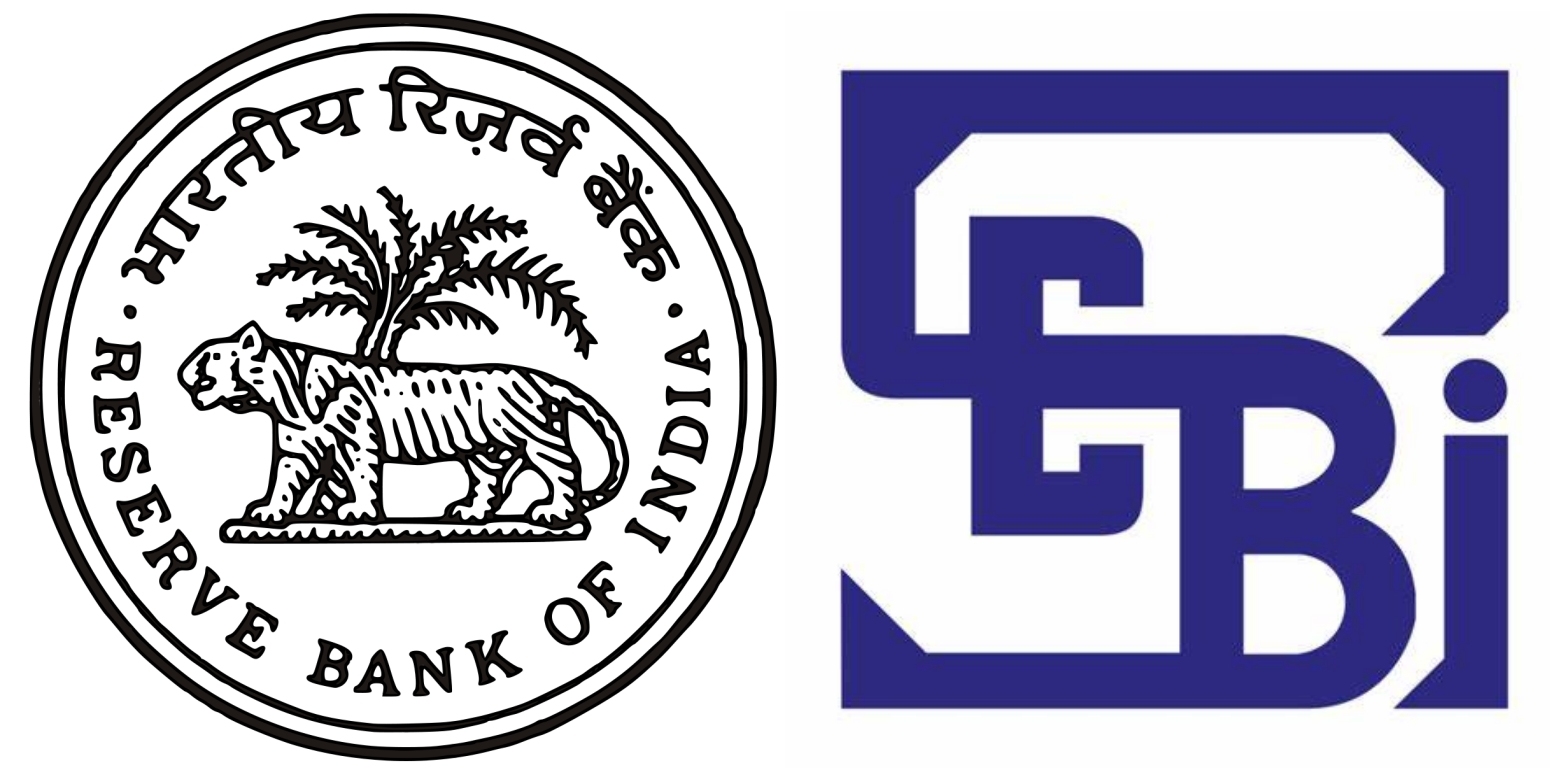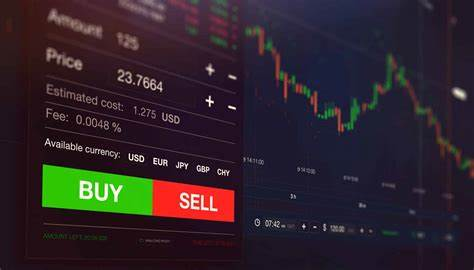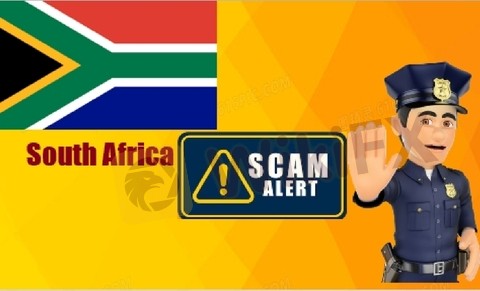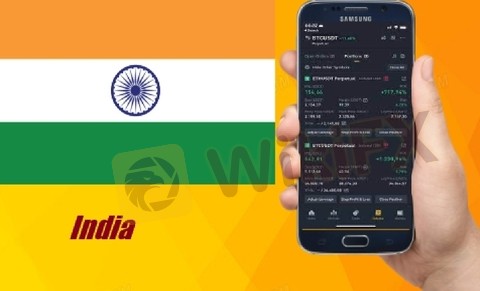Indian banks were allowed to transfer foreign currency with one another in 1978, when the government made it legal. Trading in the foreign exchange market in India is tightly controlled by the Central Government of India. All of India's Foreign Exchange Market is governed by the Foreign Exchange Management Act, 1999 (FEMA). Since 2001, the Clearing Corporation of India Limited (CCIL) has handled the majority of clearing and settlement functions in the foreign exchange market, with daily transactions totaling roughly 3.5 billion US dollars, or nearly 80% of all transactions.
The Securities and Exchange Board of India (SEBI) was created in 1988. In 1992, it was constituted a legal entity. Securities and capital markets in India are regulated by the Securities Regulatory Authority of India. Forex brokers in India must be registered with SEBI, which oversees that process as well.
The NSE, BSE, and MCX are some of the most well-known exchanges in India where currency futures can be traded. You must first open a currency trading account before you can begin trading. To legally trade forex, you must meet the broker's Know Your Customer (KYC) requirements. To keep your forex trade open, the broker will hold a certain amount of money in your account as a margin. Once your broker provides you with the login information for your trading account, you can begin trading. If you're looking for a trustworthy forex broker, we've compiled a list of the best in India for the year 2024 to help you make an informed decision.
Top 10 Best Forex Brokers in India
A Stringently Regulated Broker, Reliable and Safe to Trade With, The Choice of Over 3500,000 Clients from Over 190 Countries.
Quick & Easy to Start Your Real Trading by Funding As Low As 5 USD, Lower & Friendlier Cost Structure Available, Advanced Trading Platforms & Tools Drive You Succeed into the Forex World.
A long-established Broker, Strictly Regulated by Multiple Regulatory Bodies in Various Jurisdictions, Offering Sufficient Reliability.
Over 80 Currency Tradable, Competitive Pricing Structure with Tight Spreads from 0 Pips.
Strictly Regulated by ASIC and CYSEC, a Safe Broker to Trade With.
MT4 & MT5 Available, Plus Two Copy Platforms: Social Trading & Myfxbooks.
more
Comparison of the Best Forex Brokers in India
Forex Broker
License
Minimum Spread
Maximum Leverage
Minimum Deposit
Open account
Details
Compare
Forex Brokers in India FAQs
Is forex trading legal in India?
Following an RBI circular published in 2013, electronic or online trading websites for foreign currency have been banned. Foreign exchange trading is permissible as long as it is carried out through designated platforms and the base currency is the Indian rupee (INR) (Indian Rupees). Indian residents can only trade currency pairings that are benchmarked against the Indian rupee (INR) (Indian Rupee). NSE, BSE, MCX-SX and currency futures can all be traded legally if you use an Indian Brokerage that gives access to these Indian exchange markets and also provides access to currency derivatives.
Who regulates forex trading in India?
Forex trading in India is regulated by the Reserve Bank of India (RBI) and the Securities and Exchange Board of India (SEBI). The RBI sets out broad guidelines and rules for forex trading, while the SEBI, which regulates the securities market, provides licenses to forex brokers and monitors their compliance with RBI guidelines to ensure fair and transparent trading.

Which currency pairs can be traded in India?
In India, currency trading is permitted only in the following pairs:
USD/INR
EUR/INR
JPY/INR
GBP/INR
EUR/USD
GBP/USD
USD/JPY

What is the best time of day to trade forex in India?
The NSE, BSE, and MCX are some of the most well-known exchanges in India where currency futures can be traded. For the trader to begin trading, the broker requires that they open an account between the hours of nine in the morning and five in the afternoon (GMT). Due to the fact that the transactions are settled in cash, there is no requirement for a physical delivery method.

How to get started with forex trading in India?
Access the web
Forex trading in India requires a stable internet connection with minimal downtime. Forex trading necessitates rapid response. Even a delay of only five seconds can make or break a company. When trading forex, even a slight delay can have a significant impact on your losses.
Look for a reliable forex broker
Online, it's easy to find fake forex brokers. Finding a trustworthy forex broker takes a long time. Ensure that the forex broker you choose has the following:
Provides forex trading services that are approved by SEBI
forex traders regard him highly
providing a flat, low-cost brokerage model
With minimal margins, a large leverage ratio is offered
Providing a stable and high-performance trading platform
Open a forex account in India with the top provider
A lot of traditional and low-cost brokers still have a lengthy offline trading account opening process that necessitates unnecessary couriers to be dispatched. These couriers typically cost between Rs 120 and Rs 200. With the same amount, you can place 6-10 trade orders with Samco. For the first month, you'll get a 100% brokerage cashback rebate.
Getting access to a trading platform
Orders can be placed and trades can be initiated online with the help of the software that your broker will supply. The Giga trading engine powers Samco's new trading software, StockNote. In addition to providing you with real-time updates and market insights, it is the best and most reliable source of information available today. Take a position in the market.
You can begin trading in the Indian forex markets after successfully completing the preceding stages. It is best to start with small quantities and minimal leverage as a beginner. The amount of your capital that you put at risk in any one trade should likewise be kept to a minimum of 1 to 2 percent.
How to choose the right forex brokers in India?
Verify that all laws and regulations are being followed
If you're looking for a trustworthy forex broker, the first step is to verify that the broker is in conformity with legislation. Just because a broker has a nice website doesn't mean they're trustworthy. It's important to verify if the broker is licensed by looking at the broker's website thoroughly or by reading customer reviews.
Convenient Deposits and Withdrawals
Consider your deposit and withdrawal choices carefully before settling on a forex broker. The deposit and withdrawal options should be simple and dependable.
When it comes to Indian Forex traders, AximTrade has a wide range of deposit and withdrawal methods to choose from. Using UPI, Paytm, and Net Banking, deposits may be done quickly at AximTrade. Traders must deposit a minimum of 100 INR to begin trading. It's also simple to get your money out.
Access to a Variety of Currency Pairs
Additionally, it is crucial to keep an eye on the currency combinations your broker offers. Exchanging one currency for another is the sole purpose of doing business in the foreign exchange market (forex). As a result, the currency market deals in pairs of currencies.
A limited number of currency pairs may limit your trading alternatives even when there are a large number of currencies available for FX trading. Before you begin trading, you should check to see what currency pairs the broker offers.
Stable Trading Platforms
When a trader logs onto a trading platform, they are entering the Forex market. Choosing a broker should be simple and provide tools for both fundamental and technical analysis. Aside from these alternatives, you'll also want to look into order entry options and automated trading features as well as strategy builders and backtesting capabilities.
What are the most common trading strategies in the Indian forex market?
The most common trading strategies in the Indian forex market include:
Day Trading: This strategy involves making short-term trades within a single trading day, thereby avoiding any risks from overnight market movements.
Scalping: This is a form of day trading where traders aim to profit from small price movements, often entering and exiting trades within minutes.
Swing Trading: Swing traders aim to capture medium-term market trends. They may hold positions for several days or weeks.
Position Trading: Position traders hold positions for long term, often months or years. They rely heavily on long-term economic or market trends.
Trend Following: This strategy involves identifying and trading in the direction of market trends.
Fundamental Analysis: Traders using this strategy make decisions based on economic indicators and news events, especially those that can have a significant impact on currency valuation.
Technical Analysis: This strategy involves the study of historical price charts and technical indicators to predict future price movements.
Remember, no single strategy fits all traders, as each strategy requires different skills, risk tolerance levels, and time commitments.
What are the commission fees levied by forex brokers in India?
The commission fees charged by forex brokers in India can vary widely and depend on multiple factors. Some brokers might not charge direct commissions but make their money from the spread (the difference between the buy and sell price). This is often the case with market-makers.
Meanwhile, other brokers, like many ECN (Electronic Communication Network) brokers, charge a fixed commission per transaction but offer narrower spreads. The actual amount of these commissions can vary significantly from broker to broker.
In addition to commissions and spreads, other costs that you should consider when selecting a broker include overnight financing costs (or swap rates), inactivity fees, withdrawal fees, and the potential costs associated with maintaining the minimum required balance.
It is critical to read and understand the broker's fee structure and cost-related information in their terms and conditions before deciding to trade with them.
Do forex traders pay tax in India?
Forex traders in India are required to pay taxes on their forex trading profits. The tax rate depends on the trader's overall income bracket and is treated as income from business and profession or capital gains, depending on the trader's status, trading frequency, volume, and intention behind trading.

For frequent and high-volume traders, profits from forex trading could be considered business income. In this case, they are taxable according to the individual's tax slab rates and they can claim deductions of expenses related to trading.
For individuals who trade infrequently and not as their primary business, forex trading could be considered as capital gains. If the trades are held for more than three years, it's treated as long-term capital gain and if held for less than three years, it's treated as short-term capital gain. There are associated tax rates for both types of capital gains.
Are there any specific laws or regulations for forex trading in India that traders should be aware of?
Currency Pairs: Indian traders are only allowed to trade currency pairs that have the Indian Rupee (INR) as a base or quote currency. Some examples are USD/INR, EUR/INR, GBP/INR, and JPY/INR.
Forex Brokers: Traders can only trade forex through brokers that are registered and regulated by SEBI.
Leverage: SEBI sets limits on the leverage that brokers can offer to traders. This is done to protect traders from excessive risks.
Trading Time: Trading hours for currency pairs involving INR are from 9 am to 5 pm Indian Standard Time (IST).
Remittance Limit: The RBI mandates a limit on the amount an Indian citizen can remit overseas for investment purposes each financial year under the Liberalized Remittance Scheme (LRS). Currently, the limit is set at $250,000 per individual per year.
You Also Like

Best Forex Brokers for Beginners in Nigeria for 2024
Select the top forex brokers for beginners in Nigeria from many companies to ensure a safe trading environment.

Best Forex Trading Time in India 2024
Optimize your Forex trading in India by understanding prime trading times and exploring broker options.

What Time the Forex Market Opens in South Africa
Boost your Forex trading in South Africa with our guide on peak market hours for optimal trade activity!

6 Best No Deposit Bonus Forex Brokers in Malaysia in 2024
Start Forex trading risk-free in Malaysia! Discover the six top brokers, featuring attractive no-deposit bonuses.

7 Best Forex Trustworthy Brokers in 2024
Stay informed and avoid forex scams with our list of 7 Top Trustworthy Brokers – trade with peace of mind and profitable potential.

Top 10 Unregulated Forex Brokers 2024
Examine unregulated forex brokers, analyzing their distinguishing characteristics, inherent risks, and possible benefits for certain traders.

4 Best Forex Brokers Accepting US Traders in 2024
Discover top forex brokers accepting US traders, assessing their pros and cons to provide helpful guidance.

Best UK Forex Brokers for 2024
Review the top 10 forex brokers in UK, evaluating their trading pros and cons to provide traders with helpful guidance.
































































